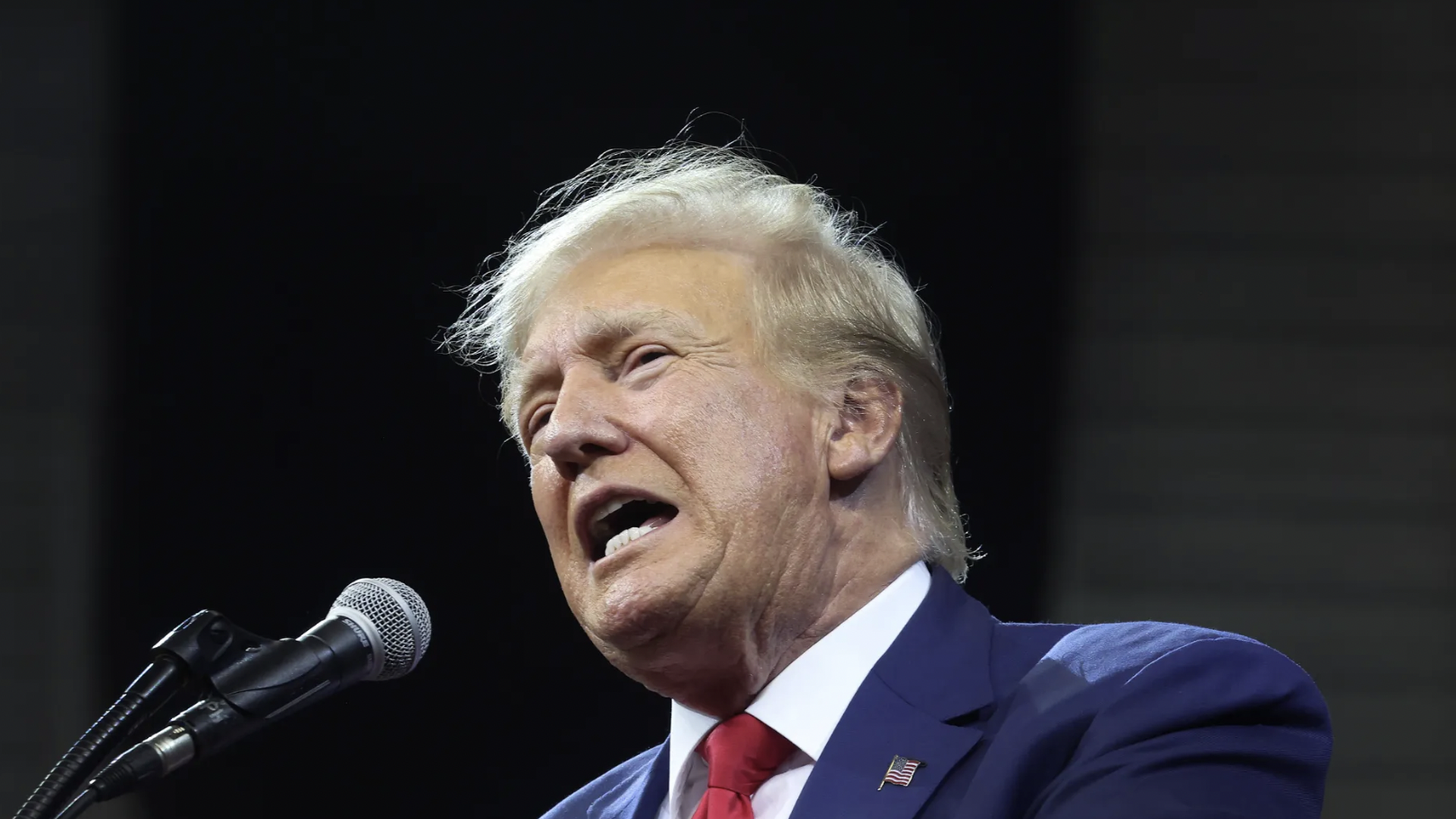What to expect from the lawsuit seeking to block Trump from the Minnesota ballot
Add Axios as your preferred source to
see more of our stories on Google.

Former President Trump at the Monument Leaders Rally hosted by the South Dakota Republican Party on Sept. 8 in Rapid City, South Dakota. Photo: Scott Olson/Getty Images
A legal fight over whether the 14th Amendment can be used to derail former President Trump's 2024 bid has landed in Minnesota.
Driving the news: A coalition of voters that includes several prominent political names filed a lawsuit Tuesday arguing that Trump is ineligible to appear on the state's ballots.
- Longtime former Secretary of State Joan Growe, a Democrat, and former state Supreme Court Justice Paul Anderson, a GOP appointee, are among the petitioners.
The big picture: Some liberal groups and state election officials across the nation are seeking to use a provision related to insurrections as a legal basis to block the GOP frontrunner's campaign.
- A similar lawsuit was filed in Colorado earlier this month.
What they're saying: "The 14th Amendment is clear: Anyone who swears an oath to uphold the Constitution and then engages in insurrection cannot ever again hold public office," Charlie Nauen of Lockridge Grindal Nauen, an attorney for the petitioners, told reporters.
Of note: The Civil War-era provision doesn't indicate a need for a criminal indictment or conviction. But it also doesn't say how disqualification should be enforced, Axios' Sareen Habeshian writes.
The other side: Representatives for Trump, who pleaded not guilty to all charges in the federal Jan. 6 case, have previously dismissed the legal theory as an "absurd conspiracy theory." His campaign has been fundraising off the legal threats.
Zoom in: While political parties select and submit the names of presidential candidates for the ballot in Minnesota, the lawsuit, backed by a legal group that has been pushing the issue nationwide, asks the state Supreme Court to force Secretary of State Steve Simon to use his authority as election administrator to exclude Trump from the ballot.
Yes, but: Other parties, including the Trump campaign and the Minnesota Republican Party, could intervene in the case.
The response: Simon said in a statement that he has been notified of the lawsuit and that "for the sake of Minnesota's voters, we hope the court resolves this issue to allow for the orderly administration of the elections in 2024."
- MNGOP chair David Hann told the Star Tribune that the lawsuit is based on a fringe theory and that voters should have the chance to decide whom to elect.
What to expect: Under state law, cases related to ballot eligibility go straight to the state Supreme Court. The court will typically assign a judge to hold a hearing and prepare findings, the attorneys said. Justices then review the facts and arguments and issue a decision.
- Nauen told reporters that given that early voting for the primary is set to begin in January, he expects it to be a "fast-moving matter."
Reality check: The novel nature of the case means there are a "lot of unanswered, tricky legal questions" for the parties and courts to sort through, Mitchell Hamline School of Law associate professor Jason Marisam told Axios.
- Those could range from challenges over the timing and venue, to the more fundamental question of whether this provision applies to the presidency.
- "It's not as simple as we're going to hold the hearing and produce evidence that Trump engaged in insurrection and that'll solve it," said Marisam, who previously defended Minnesota state law and agencies as an assistant attorney general.
What we're watching: Free Speech For People, the legal advocacy group backing the petition, says it plans to file similar suits in other states.
- The matter could ultimately be decided by the U.S. Supreme Court.
